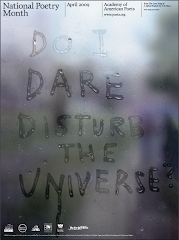Of the three essays we had to read for Thursday's class, I found myself enjoying Helen Vendler's the most. Before reading it, I had just gotten into a heated discussion of why I love literature and why I am going to become a teacher to share my love. In her essay, Vendler talks about how we cannot expect everyone to share the same love, but how through our own passion for it we can share that through the education of adolescents. However, as a teacher-in-training and a writer, this one passage stuck out to me:
"There is no need to expect all teachers to be writers. Writing is a different profession from teaching, a different profession even from scholarly research and discovery, a different profession from the profession of critical thinking. Writing demands different impulses, different talents, a different temperament. Writing not done out of love will never serve to teach others how to love what we have loved." (p. 35)
I agree fully that if you something is not done out of love, how can we expect someone to love it themselves? The one quote I would have said differently in Vendler's essay is when she says "It is perhaps true that we all love different things in literature, or love literature for different reasons." (p. 36) I would not have even said "perhaps" because it is a FACT that we all love different things about literature and for different reasons.
Subscribe to:
Post Comments (Atom)













Mar,
ReplyDeleteI also enjoyed Vendler's essay the most as well, because I find it extremely important for a teacher to really love what he/she is teaching. I am sure we have all had classes in the past, especially English courses, where it is completely obvious that a teacher has been forced to teach a specific text. If the teacher feels forced, chances are the students will feel forced. That is why I believe that a literary canon is entirely too restricting at times. It's fine and dandy if a teacher really loves Milton, but what about the teacher that doesn't, and is under the spell of a curriculum to teach him? As a future teacher, I am sure you understand the importance as well. :)
I feel like a student still has the chance to fall in love with a text if a teacher does not love the text, but it is definitely easier when a teacher is truly enthusiastic about a text. I find that teachers who love a certain text have unique ways of teaching the text. They have studied the text so much that they know how to make it accessible to someone who may know absolutely nothing about it.
-Megan R.
Megan,
ReplyDeleteIt is great to have a teacher who loves what they're teaching, and you're right; when they aren't enthusiastic about the subject, it's hard for the students to have any enthusiasm as well. Unless of course, if there are students like me, the lack of enthusiasm shown in a class may be the push to get interested in the subject itself. ;)
~Mar
Mar and Megan,
ReplyDeleteVendler's essay was one of the first essays we read when I first took this course, and it was one of the first essays which really got me excited for the course. I'm really enthusiastic about what Vendler believes could be done better in today's literature programs, and I agree very much with almost everything she says.
"The most useful critical truth a student can learn is that a piece of literature can yield different insights depending on the questions put to it." - pg. 36
I think what both of you are pointing out is not only that students interpret texts differently because they are individuals, but also that students interpret texts differently depending on how they are taught each text and by whom.
I think having a passion for a subject is just as important as having a full understanding of the subject if one is to teach it. In a way, even, I think that this is part of why I wanted to TA this course... I love the material, and I really hope I can convince at least a few people in the class to love it, too. ;)
Abby